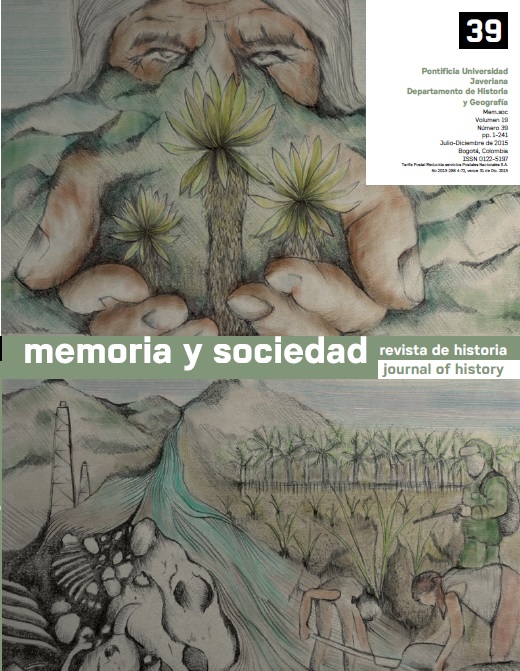Abstract
This article analyzes how environmental conflicts shed light on the dispute of interests between social actors for the appropriation of nature. Since environmentalism, they guide social action to the invention of a new mode of production and development that respect the cultural differences of the inhabitants, as well as promote conservation and active participation of the communities in the sustainable management of resources to ensure everyone equal access to its benefits and a better quality of life. This document studies specifically the history of the mobilization process of the Embera-Katío community from the Alto Sinu, in resistance to the construction of the hydroelectric project Urra I and Urra II in their territory by identifying their motivations, the interests that converge on their land and the actors who contributed to the development of the mobilization.The journal Memoria y Sociedad is registered under a Creative Commons Attribution 4.0 International Public License. Thus, this work may be reproduced, distributed, and publicly shared in digital format, as long as the names of the authors and Pontificia Universidad Javeriana are acknowledged. Others are allowed to quote, adapt, transform, auto-archive, republish, and create based on this material, for any purpose (even commercial ones), provided the authorship is duly acknowledged, a link to the original work is provided, and it is specified if changes have been made. Pontificia Universidad Javeriana does not hold the rights of published works and the authors are solely responsible for the contents of their works; they keep the moral, intellectual, privacy, and publicity rights.
Approving the intervention of the work (review, copy-editing, translation, layout) and the following outreach, are granted through an use license and not through an assignment of rights. This means the journal and Pontificia Universidad Javeriana cannot be held responsible for any ethical malpractice by the authors. As a consequence of the protection granted by the use license, the journal is not required to publish recantations or modify information already published, unless the errata stems from the editorial management process. Publishing contents in this journal does not generate royalties for contributors.

